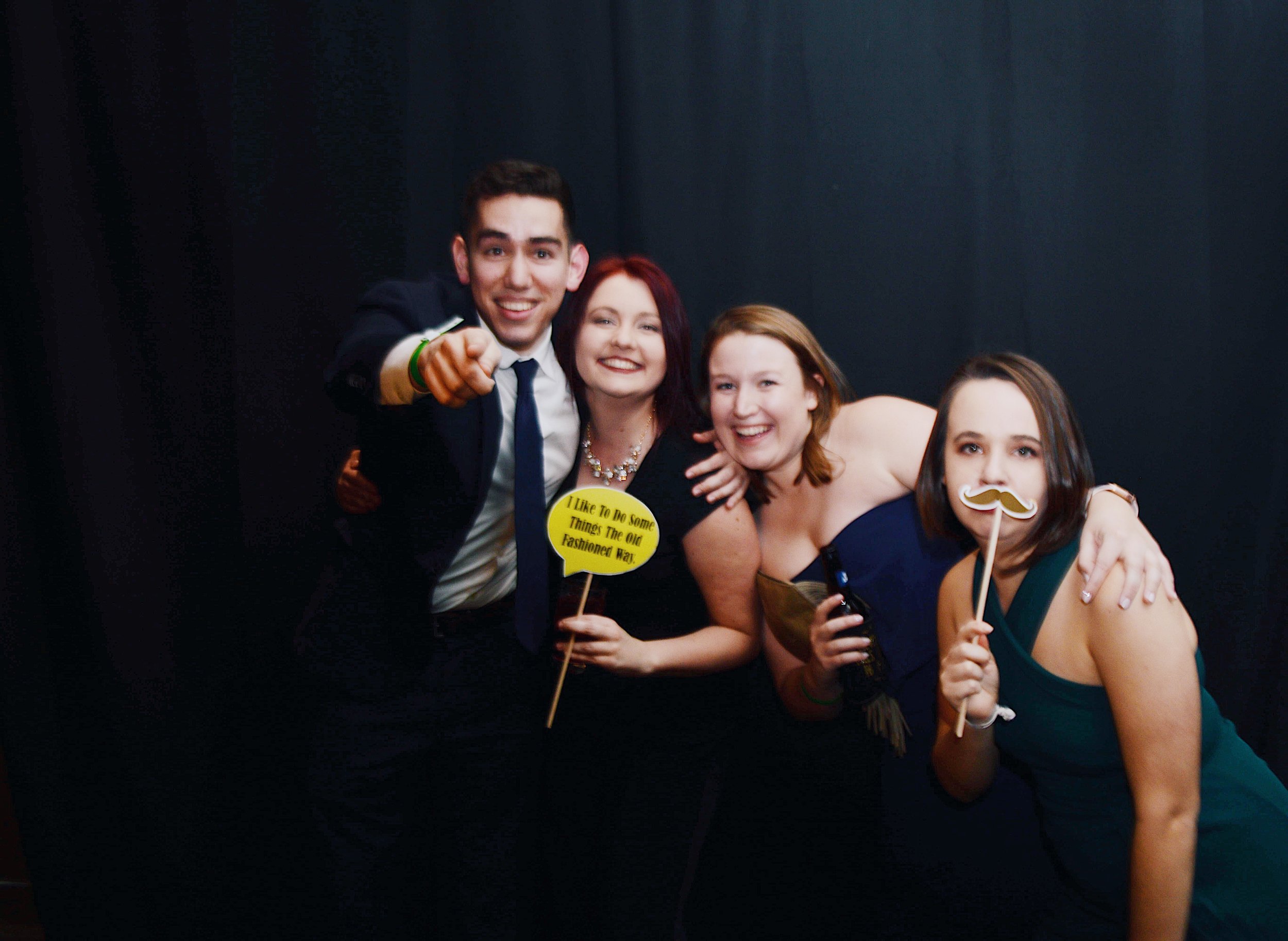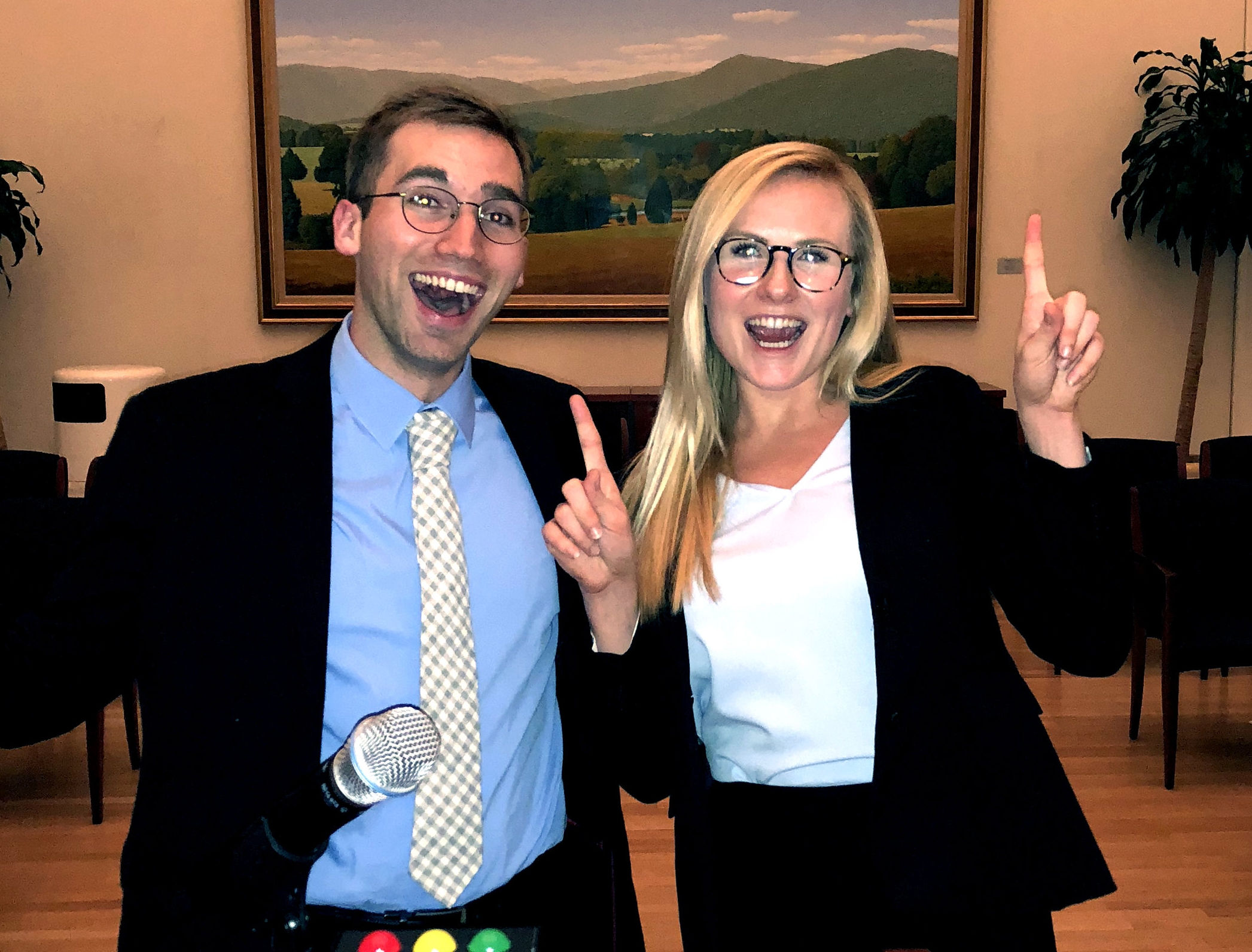Jansen VanderMeulen ‘19
Editor-in-Chief Emeritus
It is now a year since I took over as editor-in-chief of the Virginia Law Weekly, and two-and-a-half years since I first straggled into the Law Weekly’s tucked-away office in Slaughter looking for free pizza. Like the remnants of a gallon of wholesome, two-percent milk approaching its eleventh day in the refrigerator, my time has come; this is my final edition as editor-in-chief.
I could wax poetic about the last three-ish years of newspaper editing. About long Monday nights spent with colored pens alongside good friends and sometime-nemeses (lookin’ at you, Anand). About returning the Law Weekly to some of its former glory with two ABA “Best Law School Newspaper” wins in a row. About covering endless talks and symposia and Law School events.
But to be honest, I was never really that into the Law Weekly for the whole journalist thing. Yes, despite what our critics say, the Law Weekly isn’t just goofy thumbs-ups and reviews of various C’ville high- (and low-) lights. In the last year or so alone, we’ve broken numerous important stories, from the Virginia Law Review’s new membership policy[1] to the Copy Center’s move away from free printing[2] and security flaws in the University’s new dual-authentication mechanism.[3] Our coverage of the events of August 2017 were reproduced by the National Lawyers Guild,[4] and our piece on Judge Amul Thapar’s visit to the Law School made it onto SCOTUSblog’s feature on Thapar’s jurisprudence.[5] These pieces and others helped secure our paper the aforementioned ABA awards.
But that’s not what kept me at the Law School until ungodly hours eating more Domino’s in two and a half years than any human should in a lifetime. I stayed for the Law Weekly’s documentation of life at the Law School. For pieces like the one that gave advice on how to survive bear encounters (“The Bear Necessities,” 9 Sept. 2017) and profiles on Law School badasses like Chinny Sharma ’19.[6] For origin stories, like the one about Professor Mitchell’s redhead obsession,[7] and final chapters, like our in memoriam for Professor and former Law Weekly EIC J. Gordon Hylton ’77, who passed away last spring.[8] The way I see it, people can get their news from anywhere. People don’t pick up the Law Weekly for our hot takes on current events or our news about Supreme Court opinions. The paper continues to grow and thrive because we offer something no one else can: stories about life at the Law School from the perspective of students.
And make no mistake: The Law Weekly is thriving. When I got to Charlottesville as a 1L, the paper was just beginning to recover from a low point in its history. Our predecessors in the mid-teens had run the paper into the ground with juvenile garbage. Pot shots, mean jokes, even gross racial stuff. A look at the Law Weekly’s 2013 or 2014 pages is a look at a dying newspaper sadly fallen from its glory days. The editor-in-chief when I was a 1L was Alex Haden ’17, who had joined during what he called “the bad years.” Under the leadership of Alex and then Jenna Goldman ’18, the Law Weekly turned around. Professors emailed me telling me the paper had “come a long way.” Faculty members who had hated the paper’s mean streak and disliked the paper generally started contributing to its pages. One night, I stopped to talk to Frank, the nighttime security guard, and told him I was with the paper. “It’s gotten a lot better these last few years,” he told me. “Way more thumbs ups, not so many thumbs downs.” Our improvement showed: After years in the wilderness, the Law Weekly has won the ABA’s Best Law School Newspaper award each of the last two years.
I could go on about increased circulation and growing classes of 1Ls on the paper’s staff, but you get the point. To all of you loyal readers, thank you for picking the paper up off the stands and for telling me you’re not sure if ANG is a man or a woman. To Professor Doran, sorry for putting your quotes in the Faculty Quotes section even though you told me not to, and p.s. it’s pronounced “broach.” I am glad to say that as the Law Weekly begins its seventy-second year, the paper is as strong as ever and poised to continue to provide readers with the things they love about it—yes, even you, people who complain when we replace the sudoku with a cool crossword. I’m proud to have been a part of this fine old Law School tradition, and it is with confidence that I hand off the reins to a new group of leaders.
----
jmv5af@virginia.edu
[1] https://www.lawweekly.org/front-page/2018/11/28/law-review-to-vote-friday-on-selection-overhaul.
[2] https://www.lawweekly.org/col/2018/11/14/changes-coming-to-printing-policy-the-law-weekly-investigates.
[3] https://www.lawweekly.org/features/2018/3/28/do-the-login-two-step-but-read-the-fine-print.
[4] https://www.nlg.org/guild-notes/article/a-view-from-august-12th-legal-observers-in-charlottesville/.
[5] https://www.scotusblog.com/2018/07/potential-nominee-profile-amul-thapar/.
[6] https://www.lawweekly.org/features/2019/2/1/hot-bench-chinny-sharma-19.
[7] https://www.lawweekly.org/features/2018/9/11/lunch-with-professor-mitchell-it-all-started-with-a-redhead.
[8] https://www.lawweekly.org/features/2018/5/2/in-memoriam-an-interview-with-professor-j-gordon-hylton.















